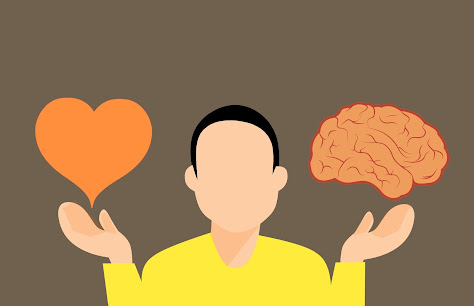Cognitive Dissonance Awareness, Information and Resources
“The question is not, do you have conflicts? The real question is, are you aware of your conflicts?” ― Abhijit Naskar
What is Cognitive Dissonance?
Cognitive Dissonance in Relationships
Cognitive Dissonance and Decision-Making
Cognitive Dissonance
Cognitive Dissonance
"Cognitive dissonance refers to the psychological discomfort or tension that arises when there is an inconsistency between a person's beliefs, attitudes, or values, and their actions or other beliefs. It occurs when individuals are confronted with information or situations that challenge their existing beliefs or when they engage in behaviors that contradict their attitudes or values.
Key aspects of cognitive dissonance include:
1. Inconsistency: Cognitive dissonance occurs when there is a perceived contradiction or inconsistency between two cognitions. These cognitions can be beliefs, attitudes, values, or behaviors.
2. Psychological Discomfort: When individuals experience cognitive dissonance, they feel an inner tension or discomfort, as their beliefs or actions clash with each other. This discomfort motivates them to reduce or resolve the dissonance.
3. Dissonance Reduction Strategies: To alleviate cognitive dissonance, individuals employ various strategies:
4. Influence on Decision-Making: Cognitive dissonance can influence decision-making processes. When faced with choices, individuals tend to select options that minimize the dissonance and maintain consistency with their beliefs, attitudes, or values.
Cognitive dissonance theory, proposed by psychologist Leon Festinger, suggests that reducing dissonance is a fundamental motivator for individuals. By seeking consistency and reducing discomfort, people strive to maintain cognitive harmony within themselves.
Cognitive dissonance can have both positive and negative effects. On one hand, it can motivate individuals to critically examine their beliefs and promote personal growth. On the other hand, it can lead to biased reasoning, resistance to change, or the dismissal of conflicting information.
Understanding cognitive dissonance can provide insights into human decision-making, attitude change, and the influence of social and psychological factors on behavior." (Source: ChatGPT 2023)
Key aspects of cognitive dissonance include:
1. Inconsistency: Cognitive dissonance occurs when there is a perceived contradiction or inconsistency between two cognitions. These cognitions can be beliefs, attitudes, values, or behaviors.
2. Psychological Discomfort: When individuals experience cognitive dissonance, they feel an inner tension or discomfort, as their beliefs or actions clash with each other. This discomfort motivates them to reduce or resolve the dissonance.
3. Dissonance Reduction Strategies: To alleviate cognitive dissonance, individuals employ various strategies:
- Changing Beliefs: Individuals may alter or modify their existing beliefs or attitudes to align them with their actions or new information. This can involve reevaluating and accepting new viewpoints.
- Changing Behavior: Alternatively, individuals may change their behavior to align it with their beliefs or attitudes. By adjusting their actions, they can reduce the inconsistency causing the dissonance.
- Rationalization: People may engage in rationalization to justify or explain away the inconsistency. They might reinterpret or downplay the significance of the conflicting information or behavior to reduce the discomfort.
- Seeking Confirmation: Individuals may actively seek information or social support that confirms their existing beliefs or attitudes, reinforcing their original position and reducing dissonance.
- Selective Exposure: People may avoid or ignore information or situations that could further amplify the dissonance. They selectively expose themselves to sources that align with their beliefs to maintain consistency.
4. Influence on Decision-Making: Cognitive dissonance can influence decision-making processes. When faced with choices, individuals tend to select options that minimize the dissonance and maintain consistency with their beliefs, attitudes, or values.
Cognitive dissonance theory, proposed by psychologist Leon Festinger, suggests that reducing dissonance is a fundamental motivator for individuals. By seeking consistency and reducing discomfort, people strive to maintain cognitive harmony within themselves.
Cognitive dissonance can have both positive and negative effects. On one hand, it can motivate individuals to critically examine their beliefs and promote personal growth. On the other hand, it can lead to biased reasoning, resistance to change, or the dismissal of conflicting information.
Understanding cognitive dissonance can provide insights into human decision-making, attitude change, and the influence of social and psychological factors on behavior." (Source: ChatGPT 2023)
A Theory of Cognitive Dissonance (book)
Festinger / Leon
Festinger / Leon
Cognitive Dissonance in Narcissistic Abuse GoodTherapy
Cognitive Reframing of Intimate Partner Aggression Article
Everyday Examples of Cognitive Dissonance Healthline
Harnessing Cognitive Dissonance: Leading Deep Change to Benefit... Article
Narcissists, Relationships, and Cognitive Dissonance Article
On the Origin of Cognitive Dissonance : A thesis presented in partial fulfilment of the requirements for the degree of Doctor of Philosophy in Psychology at Massey University, Manawatu, New Zealand Peter Clemerson, Massey University
How Cognitive Dissonance Affects Your Relationships Everyday Health
How Cognitive Dissonance in Toxic Relationships Keeps You Trapped Article
Narcissist Abuse & the Torment of Cognitive Dissonance Article
How Contradictory Beliefs And Behaviors Affect Couples Article
Narcissists, Relationships, and Cognitive Dissonance Article
New Perspectives on Cognitive Dissonance Theory PDF Download
Real-Life Examples of Cognitive Dissonance EveryDay Health
The Effects of Psychopathy and Machiavellianism
on Cognitive Dissonance PDF Download
Unreality Check: Cognitive Dissonance in Narcissistic Abuse Good Therapy
What Causes Cognitive Dissonance? Article
Ways to Reduce Cognitive Dissonance Article
Vernon Chalmers - The Challenge of Cognitive Dissonance Mental Health and Motivation
What Is Cognitive Dissonance? Verywell Mind
What is Cognitive Dissonance in a Narcissistic Relationship? Discussion
What is Cognitive Dissonance in a Narcissistic Relationship? Discussion
What is the Root Cause of Cognitive Dissonance? Linkedin
Ways to Reduce Cognitive Dissonance Article
What is Cognitive Dissonance? - Video
